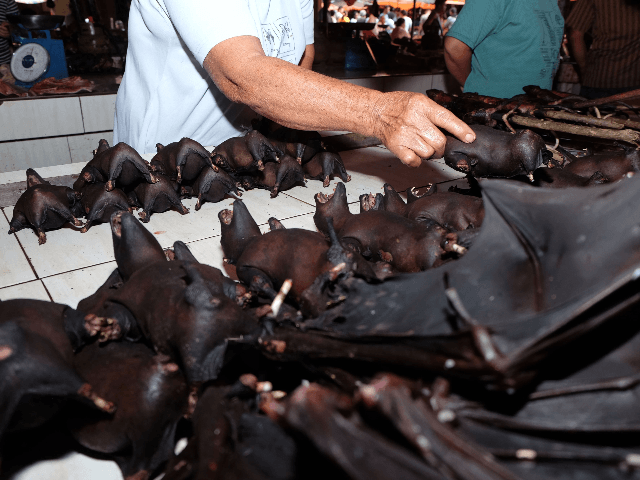Chinese state media reported on Monday that the sale of wild animals and consumption of their meat has been banned to slow the spread of the Wuhan coronavirus, which is generally believed to have spread from animals to humans.
The wild animal trade in China is valued at almost $75 billion and employs over 14 million people.
The South China Morning Post described the ban as “fast-tracked” through the Communist Party apparatus after it was proposed by Chinese Communist Party leader Xi Jinping. A temporary hold on the sale of many wildlife products was imposed in January, after the “wet markets” (open-air slaughterhouses) of Wuhan were tagged as the likely origin of the coronavirus outbreak. Animal traders previously said they expected to return to business once the temporary prohibition expired.
The ban represents a major strengthening of wildlife laws dating back to the late 1980s. Outside observers believe many of those laws have been ignored until now, including those mandating food safety checks.
In the words of the Standing Committee of the National People’s Congress, “the eating of wild animals and the huge hidden threat to public health from the practice have attracted wide attention.” The ban went into effect immediately on Monday.
According to the Standing Committee, the ban will include hunting, trading, and transporting wild animals, including those from breeding farms, but not “aquatic animals, livestock, poultry, and other animals that have a long been bred in the country.” The use of animals in medical research and Chinese traditional medicine will continue, but with stronger oversight.
Although national Communist Party officials and political analysts strove to minimize the economic fallout from shutting down the wildlife industry, the SCMP noted that some of China’s poorest regions are heavily dependent upon wildlife farming.
Easing the blow to those areas from the elimination of such a major industry will be a difficult proposition, not to mention the question of what to do with the millions of animals involved. Some Chinese wildlife farmers complained that they have been ordered to continue caring for the animals and sanitizing their facilities even though sales have been banned and their income has dropped to zero.
The UK Guardian thought the reaction to the wildlife consumption ban “exposed the hitherto unknown size of the industry,” which the central government was heavily promoting as a ticket out of poverty just a few weeks ago. The Guardian noted that at least 19,000 farms have been shut down across China since the beginning of the coronavirus epidemic, but only a fraction of that number of licenses were officially issued over the past decade.
“There is little detail available about the animals farmed across China, but local press reports mention civet cats, bamboo rats, ostriches, wild boar, sika deer, foxes, ostriches, blue peacocks, turkeys, quails, guinea fowl, wild geese, mallard ducks, red-billed geese, pigeons, and ring-necked pheasants,” the Guardian reported.
Civet cats are thought to have played an important role in spreading the SARS virus in the early 2000s. Bats were initially blamed for spreading the coronavirus, but attention later shifted to the pangolin, a scaly ant-eating mammal whose meat is considered a delicacy in some markets, while its scales are valued in traditional Chinese medicine. Due to these culinary and medical demands, pangolins are one of the most widely trafficked animals in the world, and they frequently appear on the bill of fare at wet markets.

COMMENTS
Please let us know if you're having issues with commenting.